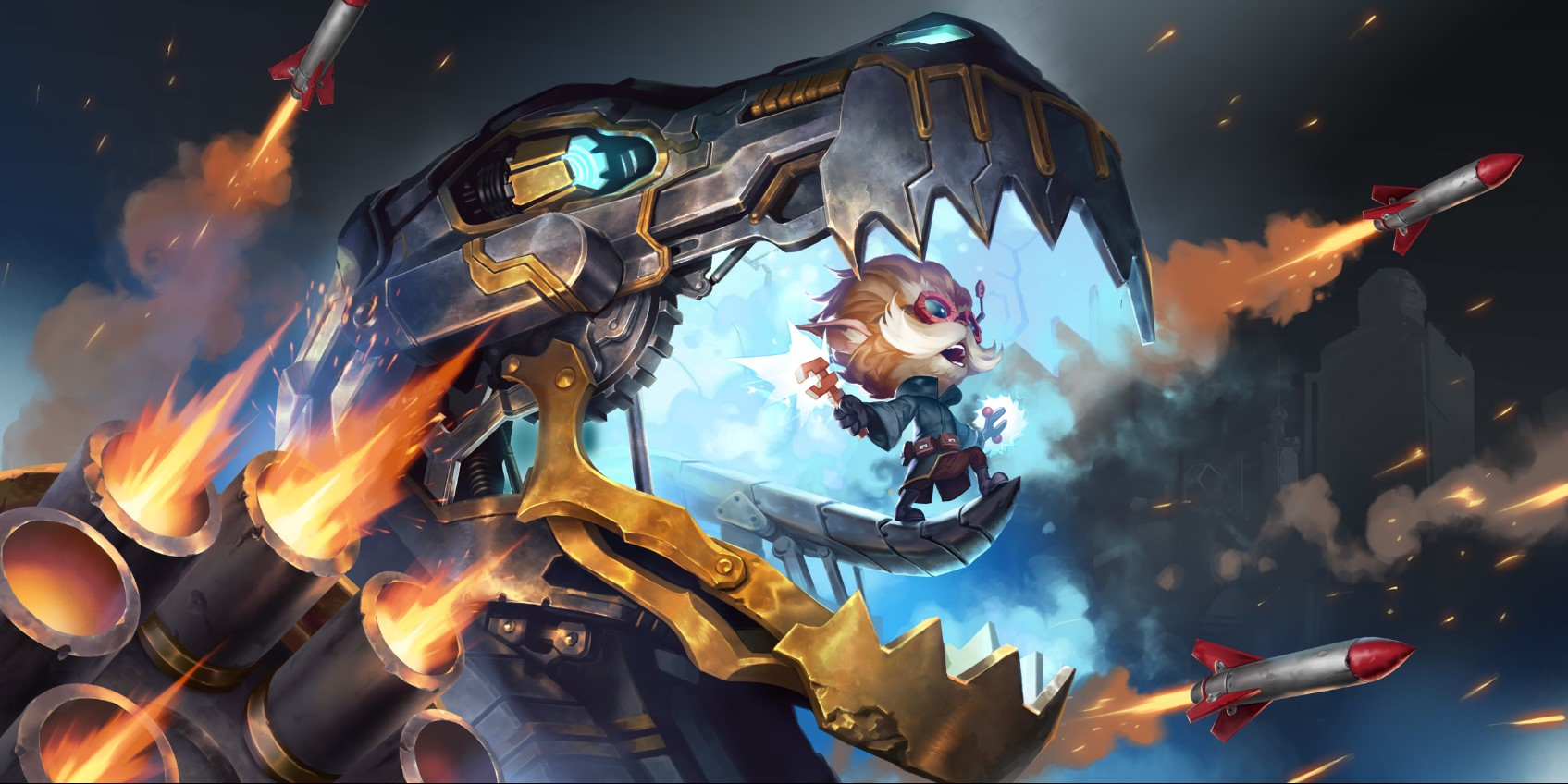Legends of Runeterra is Riot Games’ free-to-play online card game set in the world of League of Legends. Here’s why Magic: The Gathering players should try it out.
Magic: The Gathering is the most successful collectible card game in the world, with tens of millions of players worldwide. Despite its enormous worldwide success, there are only two proper analogs for online MtG play, and both have their problems.
From Magic Online’s outdated UI to Magic: The Gathering Arena’s slow progression, if you’re as fed up with unrewarding online MtG experiences as many MtG players are, you should try Legends of Runeterra.
Admit it: there’s no good way to play MtG online
Magic: The Gathering has been going through some tough periods in physical play over recent years. Rapidly inflating amounts of the product combined with seemingly endless new foil treatments, Secret Lair drops, and ancillary products galore have left Wizards of the Coast and Hasbro under some legitimate scrutiny.
All the while, digital versions of Magic present their own problems. The original digitized version of Magic: The Gathering is Magic Online, or MODO (Magic Online with Digital Objects), which has a severely outdated UI and looks like a program straight out of the early 2000s. On the other end of the spectrum, Magic: The Gathering Arena offers a much sleeker and graphically engaging take on MtG, but suffers from slow player rewards and an incomplete card pool.

The simple truth is that neither MODO nor M:tG Arena are particularly good online card game experiences by modern standards, a source of frustration for many MtG players. MODO is outdated and clings to relevancy mostly due to it being the only official online way to practice Eternal formats like Modern, Legacy, and even Vintage.
Arena is mostly relevant due to it being the more modern and good-looking version of MtG online, but it seriously lacks in payoff for time spent. So with these problems being glaring issues for MtG’s online presence, where do you turn?
What’s different between LoR and MtG?
Magic: The Gathering wasn’t built to be played online, its core systems were designed by Richard Garfield for play over a hobby store or kitchen table. This means that some parts of MtG aren’t perfectly cohesive with online play. Legends of Runeterra doesn’t have this problem, in fact, it’s been expertly adjusted to fit its online-only status.
There are a few key changes that LoR makes that put it ahead of Magic for online play. Rather than dividing up cards by colors, Legends of Runeterra separates cards by region — different territories in Runeterra. Cards from up to two regions can be in any given deck.

Firstly, Legends of Runeterra takes two unique spins on common card game mechanics. First is how it approaches turns and rounds. Legends of Runeterra splits rounds in between defense and attack, which function similar to turns in Magic: The Gathering.
By default, the attack token alternates between each player from turn to turn, though they are ways to get an attack token when you’d usually be on defense. Unlike other games, your mana will refresh between turns, and you can play cards on both your and your opponent’s turn.
Like many other digital-only card games, Legends of Runeterra uses a consistent mana system where each player gains mana at the same rate. Unlike Hearthstone, as an example, players gain mana each turn rather than each round.
Champion Cards

Comparable to Commanders in Magic: The Gathering, Legends of Runeterra is built around Champion cards, powerful cards that depict the playable characters of League of Legends. A deck can have up to six champion cards in the deck, with a maximum of three copies of any given champion cards in your deck list.
Every champion has two stages — their default stage and a leveled-up version. To level a given champion up, you need to fulfill their unique requirements for leveling up. Some will only progress while on the field or in your hand, while others can level up from inside your deck. Once leveled up, champions before more powerful and tend to be a strictly better version of their normal form.
Spell Mana
At the same time, LoR also introduces a system called spell mana. If a player has any unspent mana at the end of a turn, up to three of that mana is stored as spell mana. Spell mana cannot be used to play unit cards, but they can be used for spell cards. No more than three mana can be stored as spell mana at any time. This is a brilliant way to allow control decks to ramp towards powerful spells without punishing them for lack of early interaction.
Combine this with mana refreshing each turn, and the ability to play spells and units during your opponent’s turn means there’s rarely nothing to do. This prevents getting starved of mana or missing your “colors” and means more reliable interaction than MtG.
This allows players more flexibility in deck building. Expensive spells can be cast early by decks that forgo early pressure without losing out on mana. Skipping turns one and two allows a player to unleash a total of six mana for a big spell on the third turn of the game. MtG players used to a more slowly-developing mana system will find this keeps the game fast-paced and interesting early.
LoR rewards you for your time, MtG doesn’t
Magic: The Gathering’s online options both have one thing in common, their progression and free rewards system are painfully slow. Legends of Runeterra, on the other hand, has one of the most, if not the most, generous and well-made player rewards systems in any online card game.
There are two separate rewards tracks in Legends of Runeterra, one is a region-based track that grants random cards from a region of your choice, and the other is weekly rewards that escalate the more games you play in any given week.

MtG players frustrated by Arena’s disappointing Mastery track or slow pack acquisition will find Legend of Runeterra’s rewards system exceptionally refreshing. MtG Arena’s Wildcards are acquired slowly, and MODO’s rewards system is even more archaic and unlikely to give much value. It’s much easier to craft the units, spells, and most importantly, Champion cards needed to make a competitive deck.
A whole new world and a Path of Champions
While Magic: The Gathering Arena has substantially stepped up the graphics and effects of a match, it’s still far behind Legends of Runeterra. Not only does Legends of Runeterra have voice lines for every card and tons of unique interactions, but it is also spearheading the worldbuilding of Runeterra in preparation for League of Legends’ MMORPG currently in the works.
YouTuber Necrit makes a great case in his video “The World of Riot’s MMO is Already Done” about why Legends of Runeterra is helping to prepare the world of Runeterra for a much bigger project in the future.
Legends of Runeterra also offers Path of Champions, a PvE game mode with tons of replayability that imitates single-player experiences like Slay The Spire. You still get plenty of rewards if you’re jamming lots of Path of Champions, so you can enjoy single-player and build out the materials for a multiplayer deck at the same time.
There’s even a parcel-drafting mode called Expeditions for the MtG players who love themselves some Limited. You only have to pay with the in-game currency, Expedition Tokens for drafting, twice a week, and afterward your subsequent expeditions are all free.
If you love drafting, there are few better games than Legends of Runeterra. With multiple game modes and plentiful rewards for all of them, LoR has some huge advantages over online MtG.
The advantage of living in LoL’s shadow
In short, Legends of Runettera doesn’t need to be Riot Games’ most lucrative product, where MtG Arena and MODO are both important to Wizards of the Coast’s monetization of Magic: The Gathering. This allows it to have a more friendly rewards system, a dynamic play pattern built for online-only, and a vibrant world being built to flesh out a massive game yet to come.
This will come as a pleasant change of pace for MtG players, and they should take the time to try out Legends of Runeterra on a computer or mobile.
Play-to-play, not pay-to-win
Because Legends of Runeterra has Region rewards tracking, players are actually encouraged to progress different regions once exhausting the best rewards from other tracks. This is a great way of allowing players to find the regions that match their play style and focus in on an archetype.
You’ll receive rewards from Expeditions, Path of Champions, and multiplayer games, so getting to the point where you can field a competitive deck in multiplayer takes much less time than MODO or Arena. You might not be able to netlist an S-tier deck in your first week, but consistent play will rapidly unlock the tools you need to compete.
Legends of Runeterra is a well-made card game with tons of quality-of-life upgrades clearly made by lifelong card game players. MtG players should take the time to try it out, because after all, it’s absolutely free.




